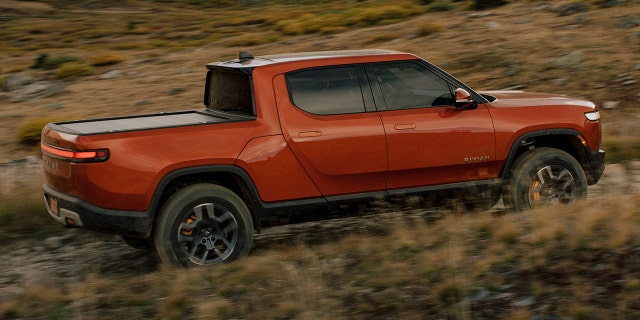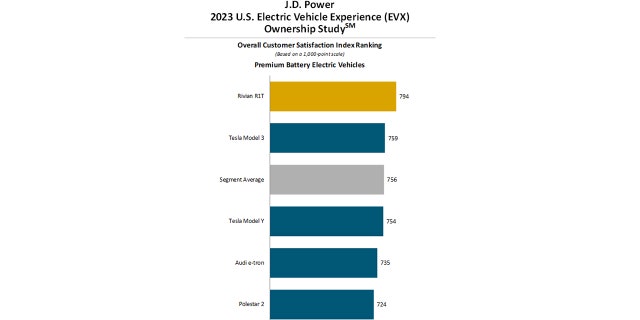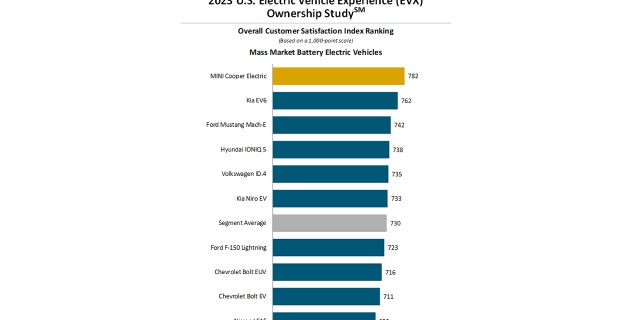

The survey asked owners to rate their vehicles across 10 factors that include accuracy of stated battery range; availability of public charging stations; battery range; cost of ownership; driving enjoyment; ease of charging at home; interior and exterior styling; safety and technology features; service experience; and vehicle quality and reliability.
The Rivian R1T had the highest overall score of 794 out of 1,000 points to lead the premium segment, while the Mini was the highest-ranked mass market vehicle with 782, even though it provides just 114 miles of driving range between charges, the least of any EV on sale today.
CONSUMER REPORTS SAYS THESE ARE THE MOST AND LEAST SATISFYING VEHICLES

The Rivian R1T was the first electric pickup on sale. (Rivian)
The Tesla Model 3 and Model Y were next on the premium list and followed by the Audi e-tron and Polestar 2. J.D. Power did not receive enough responses for the other vehicles available in the category for an accurate sample size, so vehicles like the Tesla Model S and Mercedes-Benz EQS were not included.

Several EV models were not included due to a lack of responses. (J.D. Power)
The Kia EV6 was number two on the mass-market list, with the Ford Mustang Mach-E, Hyundai Ioniq 5 and Volkswagen ID.4 rounding out the top 5.

The mass-market average is lower than the premium segment's. (J.D. Power)
The premium segment average of 756 was ahead of the mass-market segment's 730 for a variety of reasons, particularly the public charging experience, which was skewed in favor of the premium segment due to the quality of the Tesla Supercharger network.
One notable point the survey uncovered was that Rivian R1T and Ford F-150 Lightning owners who use their vehicles to tow are happier with them than those who do not. Towing owners ranked their vehicles at an average of 779 compared to 753 for non-towers and were also more satisfied with the driving range they provide, even though it is significantly lower than can be achieved with an unburdened vehicle.
According to J.D. Power, this is thanks to the automakers clearly communicating towing's effect on range, which sets clear expectations.
